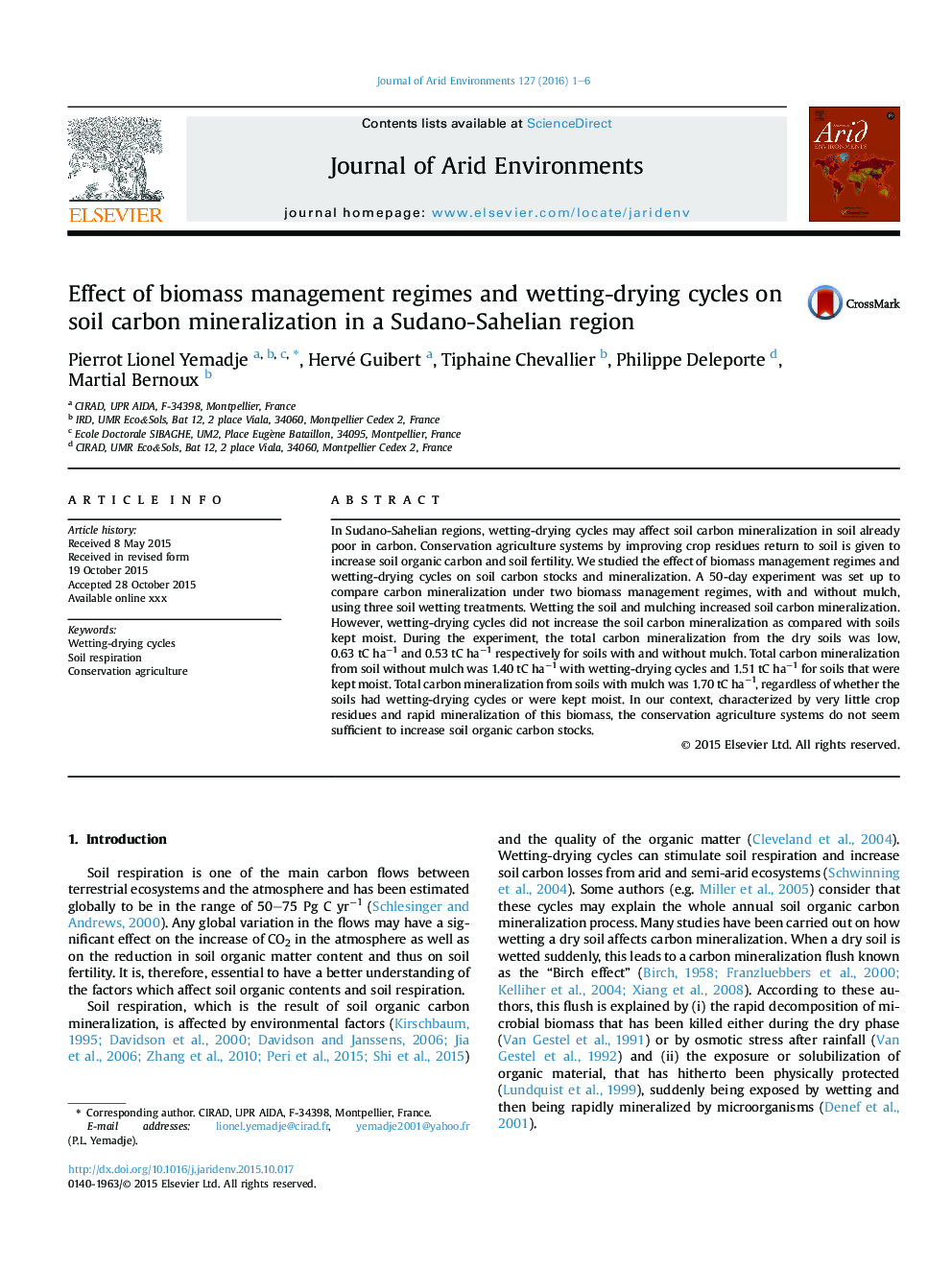| کد مقاله | کد نشریه | سال انتشار | مقاله انگلیسی | نسخه تمام متن |
|---|---|---|---|---|
| 6303217 | 1618232 | 2016 | 6 صفحه PDF | دانلود رایگان |
عنوان انگلیسی مقاله ISI
Effect of biomass management regimes and wetting-drying cycles on soil carbon mineralization in a Sudano-Sahelian region
ترجمه فارسی عنوان
تأثیر رژیم های مدیریت زیست توده و دوره های خیس شدن و خشک شدن بر کانی سازی کربن خاک در منطقه سودان-ساحل
دانلود مقاله + سفارش ترجمه
دانلود مقاله ISI انگلیسی
رایگان برای ایرانیان
کلمات کلیدی
چرخه خشک کردن و خشک کردن تنفس خاک، حفاظت کشاورزی،
موضوعات مرتبط
مهندسی و علوم پایه
علوم زمین و سیارات
فرآیندهای سطح زمین
چکیده انگلیسی
In Sudano-Sahelian regions, wetting-drying cycles may affect soil carbon mineralization in soil already poor in carbon. Conservation agriculture systems by improving crop residues return to soil is given to increase soil organic carbon and soil fertility. We studied the effect of biomass management regimes and wetting-drying cycles on soil carbon stocks and mineralization. A 50-day experiment was set up to compare carbon mineralization under two biomass management regimes, with and without mulch, using three soil wetting treatments. Wetting the soil and mulching increased soil carbon mineralization. However, wetting-drying cycles did not increase the soil carbon mineralization as compared with soils kept moist. During the experiment, the total carbon mineralization from the dry soils was low, 0.63Â tCÂ haâ1 and 0.53Â tCÂ haâ1 respectively for soils with and without mulch. Total carbon mineralization from soil without mulch was 1.40Â tCÂ haâ1 with wetting-drying cycles and 1.51Â tCÂ haâ1 for soils that were kept moist. Total carbon mineralization from soils with mulch was 1.70Â tCÂ haâ1, regardless of whether the soils had wetting-drying cycles or were kept moist. In our context, characterized by very little crop residues and rapid mineralization of this biomass, the conservation agriculture systems do not seem sufficient to increase soil organic carbon stocks.
ناشر
Database: Elsevier - ScienceDirect (ساینس دایرکت)
Journal: Journal of Arid Environments - Volume 127, April 2016, Pages 1-6
Journal: Journal of Arid Environments - Volume 127, April 2016, Pages 1-6
نویسندگان
Pierrot Lionel Yemadje, Hervé Guibert, Tiphaine Chevallier, Philippe Deleporte, Martial Bernoux,
